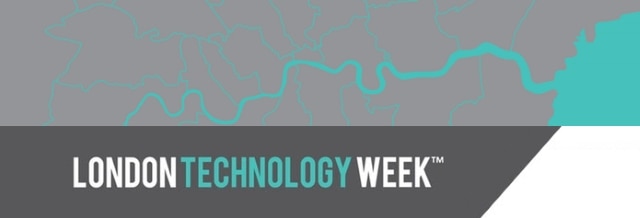Guest post: What I learnt about the future potential of MOOCs and e-learning at London Technology Week
David Reilly is a digital marketing consultant and passionate advocate of digital disruption. He manages the Meetup group, Future Thinking in Digital Marketing, and runs workshops via his digital training company, Lets Learn Digital. In this guest post, he explains what he learnt from the Meetup he ran as part of London Technology Week recently.

London Technology Week was established in 2013 as a celebration of London’s emergence as a global centre for new tech innovation, entrepreneurship and creative talent.
This year, I was delighted to host a Meetup as part of the week, exploring the potential disruption of MOOCs (Massive Open Online Couses) and the future of e-learning.
We welcomed Alan Heppenstall from Accredible, an e-learning startup, and Matt Walton, Head of Product at FutureLearn.
What I learnt about MOOCs and e-learning
The evening was fantastic and full of positivity about the potential of technology to shape the future of education. Here is my summary of the key points made by both speakers on the night:
- While there has been a three-fold rise in the cost of traditional higher education in the last 10 years, there has not been a corresponding rise in graduate salaries nor any sign of an improvement in their employability. Thus, the current education system is ripe for disruption.
- As Alan clearly explained (see his slides), MOOCs are just one part of the digital revolution happening in education – lots of new business models are emerging such as Udemy, Fedora and Quora.
- As Matt expressed, every great digital product has a clear vision; FutureLearn’s is “To inspire the best learning experience by telling stories, provoking conversation and celebrating progress.”
- Learners not only learn from a teacher, but also from each other, so social learning – integrating conversations at the heart of your course modules – makes strategic sense. This is a feature of FutureLearn’s courses, which is revolutionising online learning.
- User design and user experience (UX) should encourage learners to celebrate their progress at every stage of course completion.
- We are now observing that online learning can be an exceptionally creative learning experience. Matt showed some great examples using videos, quizzes, peer reviews and simple exercises.
- The commercial models for building sustainable e-learning are now making progress, but there is still more to do. FutureLearn is now offering a Statement of Participation for course completion.
The future looks bright
Both speakers agreed that we are heading towards some kind of lifelong, totally immersive learning experience, which seamlessly fits into the lifestyle and interests of learners. The story of education technology is just beginning, but the future looks bright.
What role do you see MOOCs and e-learning playing in our future? Tell us in the comments below.




